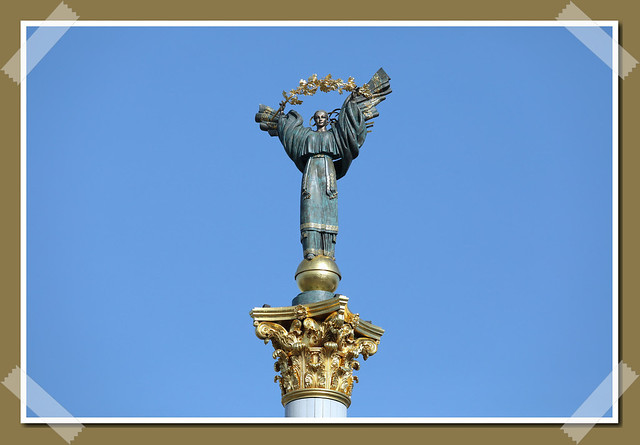There are few complete written records documenting Slavic pagan beliefs. Research into the Slavic pre-Christian belief system is complicated, because the Slavic nobility and peasantry worshipped separate deities. In addition, Christian beliefs eventually were integrated into the myths, which further complicates the task of determining the original deities and their myths.
The names and attributes of some of the major and minor deities are known, however. They are presented here to serve as springboards for further research by storytellers and scholars.

Bereginia is a primordial goddess venerated throughout Slavic lands. Her name may derive from Berech, “to protect.” Alternatively, Bereginia is ...

Bereginy refers to a host of Slavic water spirits who serve as Bereginia’s entourage. Slavic women paid public homage to ...

Byelabog: the deity of light, of all goodness and happiness. His name means “white god” and his prime adversary is ...

Dazhbog (Dazbog, Dazdbog) (giving god) In Slavic mythology, sun god, son of Swarog, the sky god, and brother of Svarogich, ...

Khors: a seemingly contradictory character described as the god of the Sun, chaos, and darkness ...

Kikimora The Kikimora is a female house spirit with dominion over spinning, weaving and needlework. There is not one Kikimora ...

Kupalo: a god of vegetation and the center of the celebration called Kupala. The festival was timed to midsummer night, ...

Spirit of love, beauty and spring, Lada was widely venerated throughout Slavic Europe as well as Baltic Lithuania. She was ...

Lado is the sacred partner and consort of Lada, Goddess of Spring. He is her male counterpart and is invoked ...

Mokosh Moist ALSO KNOWN AS: Mokosha; Mokosz ORIGIN: Slavic Mokosh is the spirit of moisture. She is an ancient spirit ...

Perun: god of thunder and lightning, sometimes portrayed as the chief of the Slavic gods. Generally pictured as a man ...

Rod: possibly the most ancient of the Slavic deities and probably a peasant’s deity. His name means “kin,” and he ...

Rozhenitsa: the birth-giver, goddess of fertility or childbirth ...

Stribog: god of the wind, cold, and conflicts ...

Svantovit Strong Lord ORIGIN: Slavic Svantovit, spirit of war and victory, was revered by Balts and Slavs alike and petitioned ...

Svarog ALSO KNOWN AS: Swarog ORIGIN: Slavic Svarog, Ruler of the Sun and Spirit of Fire, once headed the Slavic ...

In Slavic myth and folklore, the vodianoi is the unpredictable, dangerous king or spirit of water, particularly of freshwater. As ...

Volos ALSO KNOWN AS: Veles Volos is the lord of cattle, wolves, wealth, and well-being. He defends the balance between ...

Yarilo (also Jarilo or Yaro): god of the springtime and spring fertility. He is portrayed as a young man in ...

The Zorya are guardian goddesses, three sisters: • Zorya Utrennaya, Lady of the Morning Star • Zorya Vechernyaya, Lady of ...


